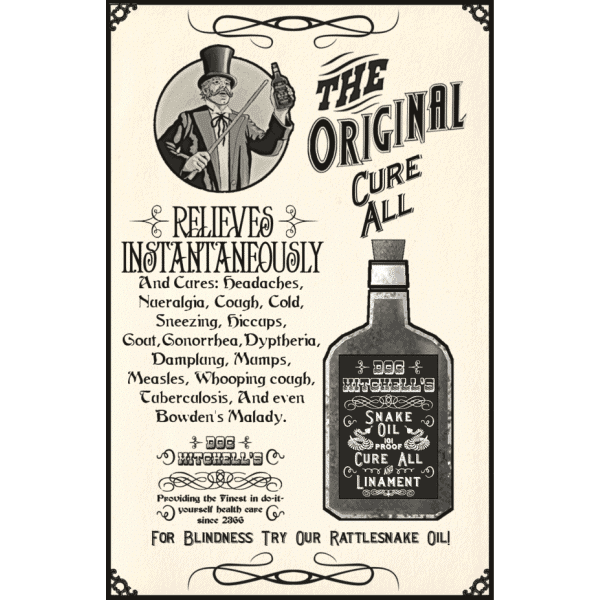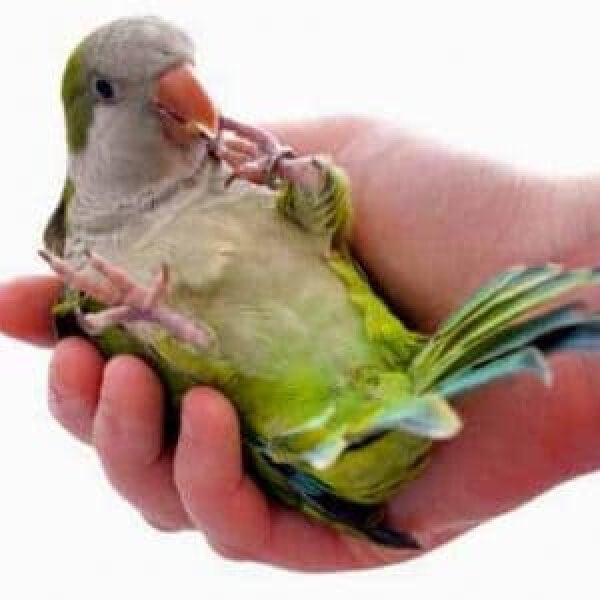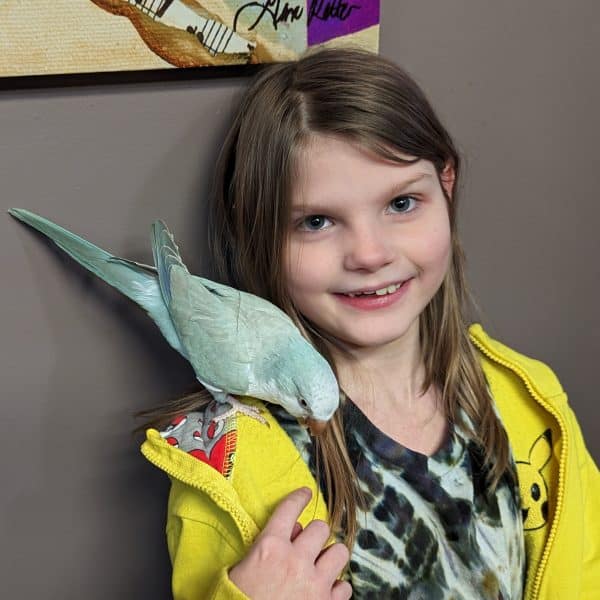Last Updated on by Mitch Rezman
On June 2, 2018 I responded to the question:
I, for the most part, pleaded ignorance and suggested that he not give his African Grey CBD oil based on my “spidey sense.”
Now I’m seeing more conversations about the use of CBD oil on all sorts of animals but obviously, my concern is the effects of CBD oil on our pet birds.
Let’s take a deep dive into the subject, shall we?
Two things primarily concern me about CBD oil as it impacts birds.
Zero long-term studies for CBD on humans and animals which are especially important when you have animals that can live for half a century or more.
Dosing is all over the place.
It’s one thing when you’re dealing with a 25-pound dog.
It’s another when you’re dealing with a 64-gram Green Cheek Conure.
That said why do we think that CBD oil should be good for any animal or human?
From Wikipedia
“The existence of cannabinoid receptors in the brains of mammals was first discovered in 1988 by five scientists at St Louis University Medical School Department of Pharmacology in Missouri USA. Lead authors Allyn Howlett and William Devane and their team tested a biologically active bicyclic cannabinoid analgetic CP-55,940 and found that it would selectively bind to certain P2 membranes and synaptosomes in the brain tissue of rats.”
How much CBD are these white-fronted actually getting without eating 100% of what’s in the dish?
So let’s ask a Vertranarian and herbalist of 32 years, what he thinks.
“But cannabis is not great for animals across the board. In the wrong formulations, it can harm or even kill them.”
From science, we learn –
“The Value of Animal Studies”
Much of the research into the effects of cannabinoids on the brain is based on animal studies.
Many speakers at the public workshops associated with this study argued that animal studies of marijuana are not relevant to humans.
“Animal studies are not a substitute for clinical trials, but they are a necessary complement. Ultimately, every biologically active substance exerts its effects at the cellular and molecular levels, and the evidence has shown that this is remarkably consistent among mammals, even those as different in body and mind as rats and humans. Animal studies typically provide information about how drugs work that would not be obtainable in clinical studies. At the same time, animal studies can never inform us completely about the full range of psychological and physiological effects of marijuana or cannabinoids on humans.”
“If humans are raving about CBD oil and all its positive effects, it’s got be great for our birds right?”
Well there’s that only one species of humans versus 11,000 species of birds thing that we have to overcome for an answer to that question.
A brief abstract from The Royal society publishing regarding the Black-capped Chickadee.
However, when the reward location changed during the retention interval, birds that had received SR141716A (CBD oil) during initial learning showed impairments in recalling the most recent reward location. Thus, blocking CB1–R activity may lead to more robust, long-lasting memories, but these memories may be a source of proactive interference.
This bird is not well and not exhibiting typical GCC “screechy” behavior.
In the video, the woman mentions he “flew into a wall”.
I say the bird suffered a concussion triggering the seizures,
What are your thoughts? (Please post in the comments below).
A study from Cornell University showed how the lack of cannabinoids in the Black-capped Chickadee affected its memory.
ITHACA, N.Y. – Some birds’ already-amazing memories – for the thousands of different spots where they cached their food – can be further improved by blocking natural brain chemicals called cannabinoids, which resemble the active ingredient THC in marijuana.
But improved memory can be a liability for cannabinoid-free birds, Cornell University researchers have discovered: When their food is moved, birds without the benefit of cannabinoids have trouble imagining where else the food might be.
Perhaps the reason cannabinoid sensitivity exists in the brain is to provide a balance in memory, between accuracy and flexibility.”
Feathered factoid – the Western Scrub-Jay (cousin to the Blue Jay) has the ability to re-cache food.
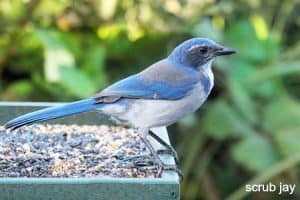
In other words, he will hide his food in front of the flock and map it in his mind but everyone in the flock will also know where the food is.
A Western Scrub-Jay will wait until the flock can no longer see his cache and then will dig the entire stash up and move it to a new place where the flock could never find it.
I don’t think Scrub-Jays need any chemical help.
Great right?
Move slowly grasshopper – ask more questions
Why are veterinarians still prescribing expensive remedies like the anti psychotropic drug Haldol (for feather self-destruction) and Tramadol when they can be dolling out $20 worth of CBD oil?
Are veterinarians that focused on money?
Let’s not get hung up.
I do a lot of back-end website work including databases building and reconstruction.
I’ve learned that it’s important not to also look for something but to look for nothing or what isn’t there that should be.
Thus I ask rhetorically why are there no commercial bird food manufacturers private labeling or producing their own line of CBD oil?
These companies have the resources, food scientists, nutritionists, and infrastructure to create consistent superior products.
Yet there is not one name brand CBD oil for birds.
That shouldn’t have to stop us.
Theoretically, I’ll buy into the CBD thing for a moment and start shopping.
First, how do I know what CBD oil for birds I buy is good?
Citizen Truth says you should acquire a CBD certificate of analysis (COA), but where do those come from?
“COAs aren’t always easy to get your hands on before buying a product. You may need to reach out to the company to request it.”
There’s a red flag why are they making it so hard to find out what’s in the bottle?
You’ll also read about “4 Red Flags to Watch out for in a Certificate of Analysis”.
Assuming we found a product that meets our criteria we must begin to look at the dosing.
I’ve randomly selected a couple of online brands and will share with you what I found.
Editor’s note – Windy City Parrot will not be selling CBD oil in the foreseeable future until it gets recognition from avian veterinarian influencers, national brand bird food companies, and/or the FDA.
Cann-Avia proudly provides the world’s first avian CBD product.
Which I take to imply that it’s whitelisted for 11,000 species of birds.
A standard eyedropper dispenses 0.05 ml per drop, meaning there are 20 drops in 1 milliliter of medication.
Doing the math: a 5 ml bottle has 100 doses and a 10 ml bottle has 200 doses. (Most eyedrop prescriptions are dispensed in either 5 or 10ml bottles.)
Cann-Avia provides very specific dosing.
50mg / 1oz(30ml) bottle
Weight of Bird Dose
50g-75g .13ml-.19ml
75g-100g .19ml-.25ml
100g-125g .25ml-.32ml
125g-150g .32ml-.38ml
150g-175g .38ml-.44ml
175g-200g .44ml-.5ml
200g-225g .5ml-.56ml
225g-250g .56ml-.62ml
250g-275g .62ml-.69ml
275g-300g .69ml-.75ml
300g-325g .75ml-.81ml
A little housekeeping here.
We all take “drops” for granted but actually the size of a drop is not an arbitrary measurement.
There are 90,921.8 drops of water in a gallon, or for you metric folk – 20,000 drops in one liter.
Doing the math for a 300g-325g (Think Rose-breasted Cockatoo) using the max dose .81ml which comes out to 16.2 drops.

Not sure how to dole out .2 drops but we now know a 1oz (30ml) bottle only has 37 doses, a month, and a week of single daily dosing.
Short of hand feeding formula, will your bird accept 16 drops of anything let alone a strange brown liquid – every day?
If you look at dosing for a larger parrot like a Blue and Gold Macaw (I figure 900-1000 grams) the potency is increased and the dosage recalculated.
200mg bottle / 1oz(30ml) bottle
Weight of Bird Dose
350g-400g .22ml-.25ml
400g-450 .25ml-.28ml
450g-500g .28ml-.31ml
500g-550g .31ml-.34ml
550g-600g .34ml-.38ml
600g-650g .38ml-.41ml
650g-700g .41ml-.44ml
700g-750g .44ml-.47ml
750g-800g .47ml-.5ml
800g-850g .5ml-.53ml
850g-900g .53ml-.56ml
900g-950g .56ml-.6ml
950g-1000g .6ml-.63mg
Note inaccuracies with the last two lines above.
I can tell you from running websites for over 21 years that if you see inaccuracies on a website’s home page, you will find them everywhere else in the organization because nobody’s focusing on getting things absolutely right.
Let’s look at That Pet Here CBD oil.
They have a CBD oil for parrots
Their dosage is as follows
How To Use
-Shake well before each use
-1 drop per 500 grams
-2 times a day or as necessary
-Store in a cool dark place
Well, it beats the hell out of 16 drops a day or 32 if you’re giving your bird a twice-daily dosage from the other guy.
This is all well and good but what if I want to serve it to my 25-gram budgie or a 100-gram cockatiel?
How do you dose out 20% of a single drop?
They claim
Our CBD oil is:
-Safe and Non-Psychoactive
-Reduces Pain and Inflammation
-Helps with Anxiety, Stress, and depression
-Reduces Phobias
-Stimulates appetite
-Helps with sleeping disorders
-Promotes good brain and immune function
-Reduces Seizures and Epilepsy
-Helps with IBD Inflammatory bowel disease
-Protects the Nerve System
-Helps with Skin Allergies
-Legal in all 50 states
Can someone show me the research that supports the claims (above)?
Have these been proven true by the FDA?
The site has one glowing positive review.
No research just anecdotal stories.
From Verywell health
Complementary and alternative medicine (CAM) comes in a broad range of forms.
While some doctors and patients embrace them and make use of CAM, even integrating them with conventional therapies, other professionals, and patients dispute their efficacy, believe they may be dangerous, even think they are either a joke or a criminal activity.
You can do your own research and I think you’ll find the same inconsistencies I do.
Just as snake oil was sold as an elixir back in the 19th century it’s important to ask if CBD is 21st-century snake oil?
What does the FDA think about CBD oil?
They are actually taking it seriously which you can read about in this article entitled What You Need to Know (And What We’re Working to Find Out) About Products Containing Cannabis or Cannabis-derived Compounds, Including CBD.
What we don’t see even in the fine print of CBD oil vendors is public research that contains
“The FDA is working to learn more about the safety of CBD and CBD products. More specifically:
The effects CBD could cause in the body, such as toxicity to the liver, when someone ingests CBD regularly over a long period of time. During its review of the marketing application for Epidiolex — a purified form of CBD that the FDA approved in 2018 for use in the treatment of certain seizure disorders — the FDA identified certain safety risks, including the potential for liver injury.”
In conclusion, allow me to paint a simple scenario.
You and your veterinarian agree that your bird has arthritic feet.
You decide based on anecdotal rhetoric in 12 Facebook groups that you are going to treat your bird with CBD oil because “it cures arthritis”.
While CBD oil is not healing anything, merely masking pain in your bird’s feet.
This means you’re no longer motivated to make the necessary changes to perches and accessories in the cage in order to lessen the stress on your bird’s feet.
So if your bird continues to walk and sleep on the wrong perches because the pain is gone but you have not made the appropriate inside-the-cage environmental corrections you have accelerated it’s path to a severely handicapped pet bird.
Snake oil or miracle, you decide.
Written by Mitch Rezman
Approved by Catherine Tobsing
Your zygodactyl footnote
Clark Stanley, the “Rattlesnake King,” alleged that rattlesnake oil was just as good. Stanley mesmerized crowds at fairs by killing rattlesnakes and squeezing out their juices, claiming the oil could treat lumbago, pain, arthritis, rheumatism, and all other ailments known to man. You can almost hear him say, “STEP RIGHT UP FOLKS!”
Do you really need to read more?
Author Profile
Latest entries
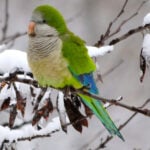 The Traveling BirdJune 26, 2025Can You Name 5 Parrot Species That Are Living Wild in the USA?
The Traveling BirdJune 26, 2025Can You Name 5 Parrot Species That Are Living Wild in the USA?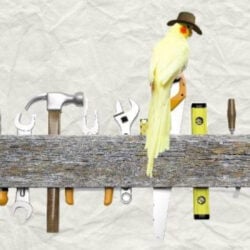 Bird BehaviorJune 26, 2025How is it Parrots Are Problem Solvers Social Animals and Even Use Tools?
Bird BehaviorJune 26, 2025How is it Parrots Are Problem Solvers Social Animals and Even Use Tools?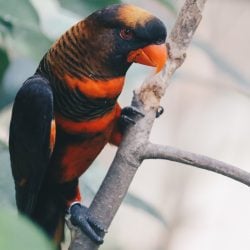 Bird & Parrot AnatomyJune 25, 2025How a Tiny Chemical Modification Makes Parrots Nature’s Living Paintings
Bird & Parrot AnatomyJune 25, 2025How a Tiny Chemical Modification Makes Parrots Nature’s Living Paintings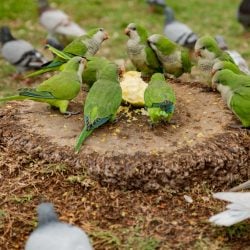 PigeonsJune 20, 2025How Do Parrots Thrive in Cities Outside Their Native Habitats?
PigeonsJune 20, 2025How Do Parrots Thrive in Cities Outside Their Native Habitats?
